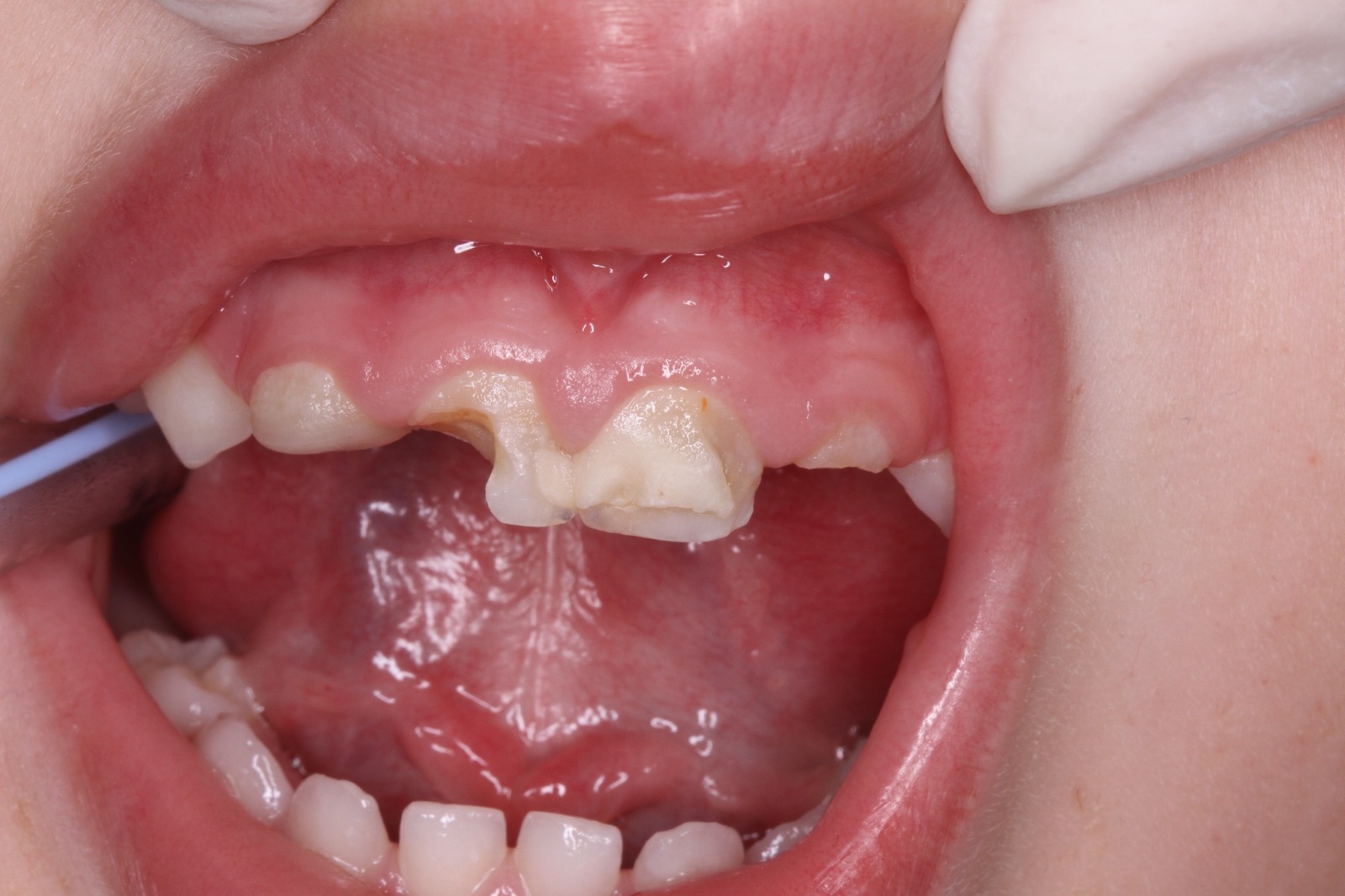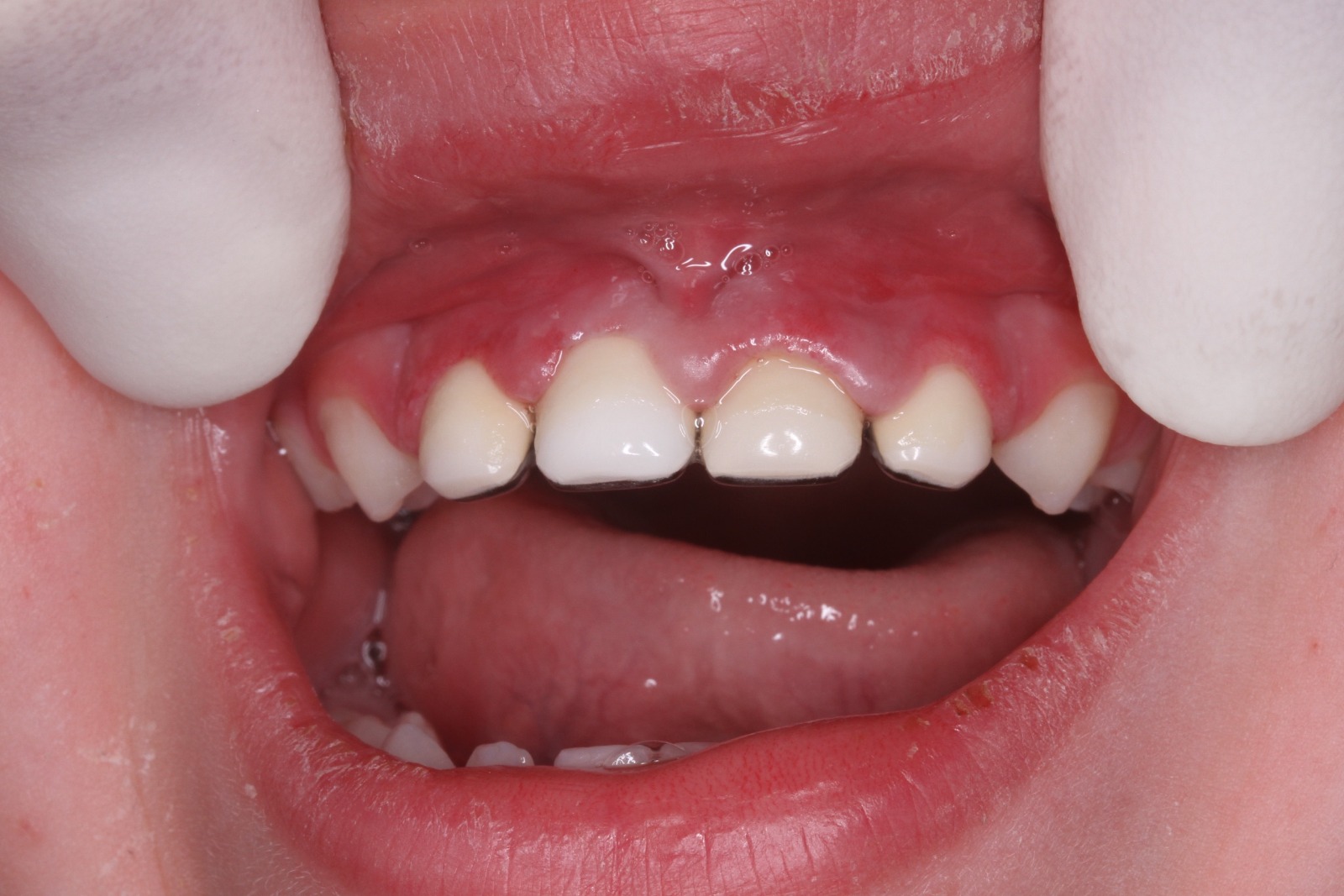This is the area of dental medicine that focuses on prevention and treatment in babies, children and adolescents. The paediatric dentist seeks to implement preventive oral health habits that keep the child free from oral diseases. Paediatric dentistry focuses particularly on the prevention, early detection and treatment of oral diseases in children, always keeping up to date and aware of all the innovations in paediatric oral medicine.




When should I take my child to the dentist for his or her first appointment?
In order to prevent any dental problems, you should take your child to a paediatric dentistry appointment as soon as their first tooth appears or, at least, before the child turns one year old.
What is the difference between a paediatric dentist and a family dentist?
Paediatric dentists are paediatricians of oral health. Paediatric dentists carry out a two or three-year specialisation after graduating and limit their activity exclusively to treating children. Above all, paediatric dentists are concerned with the oral health of children and adolescents, including those who have special health care needs.
Are “baby teeth” really important?
The first set of teeth, or “baby teeth,” are important for several reasons: not only do they help the child to speak clearly and chew naturally, but they also help to form the correct direction that the second set of teeth, or permanent teeth, can follow.
Children with healthy teeth chew better and earlier, learn to speak correctly and smile confidently.
What should/can I do if my child has a toothache?
First, wash/irrigate the irritated area thoroughly with warm water and a little salt; then, apply a cold compress to the face if it is swollen. In case of pain, give your child ibuprofen or paracetamol instead of aspirin.
Finally, take the child to a paediatric dentist as soon as possible.
Is thumb sucking or pacifier sucking bad for my child's teeth?
Thumb sucking or pacifier sucking usually only becomes a problem if the habit continues for a very long time. Most children grow out of these habits on their own, but if they continue when the permanent teeth start to come in, your paediatric dentist may recommend a brace.
How can I prevent cavities from developing during breastfeeding?
Avoid breastfeeding or bottle feeding your child while he or she is sleeping, and do not put anything other than water in the bottle to drink at night. Once the first tooth comes in, you should stop giving your child a bottle or breastfeeding at night.
Encourage your child to drink from a cup when he or she is about to turn one year old. You should not give your child juice from a bottle, but always from a cup.
You should also teach your child the proper way to brush his or her teeth and use dental floss. Take your child to the paediatric dentist regularly to have his or her teeth and gums checked. The first visit to the paediatric dentist should be scheduled around your child’s first birthday.
Tips to keep in mind when the first teeth appear:
Between the ages of six months and three years, your child’s gums may become inflamed whenever a new tooth appears. Most children enjoy biting on rubber or silicone rings that contain water and put it in the refrigerator so that it cools down and “numbs” the inflamed gums a little. You can also give your child a clean cloth nappy to bite on, soaked in cold water, or gently massage his or her gums with a clean finger.
How often should I take my child to the paediatric dentist?
It is advisable to have a dental check-up every six months to prevent cavities or other problems. However, based on your child’s oral diagnosis, your paediatric dentist will be able to tell you when and how often you should take your child for check-ups.
Toothpaste: When should I start using it and how much should I use?
Toothpastes with fluoride should be introduced into your child’s oral hygiene routine as soon as the teeth appear. The toothpaste should contain 1,000 to 1,450 ppm of fluoride (this information should be explicitly stated on the toothpaste). Before the baby teeth appear, parents should clean their child’s teeth with water and a soft-bristled toothbrush. Parents should supervise brushing and ensure that the child only puts a pea-sized amount of toothpaste on the toothbrush. The child should spit out excess toothpaste and never swallow it.
How can I maintain a proper diet so that my child's teeth are healthy?
Make sure your child eats a balanced diet at every meal, including a portion of fruit and vegetables, bread and cereals, milk and other dairy products, meat, fish and eggs. You should monitor and limit the consumption of sugar and starch (foods with flour).
You can also ask your paediatric dentist to help you choose the foods that will best protect your child’s teeth.
How do dental sealants work?
Dental sealants work by filling the cracks in the surfaces of the teeth, where small particles of food can “store” and form cavities. They are easy and comfortable to apply and can effectively protect teeth for several years.
How can I prevent injuries to my child's teeth?
You can protect your child’s teeth during sports by using mouth guards. In the car, you should always use a car seat that is appropriate for your child’s age and weight and that meets all safety standards. Always fasten the seat belt around children and make sure this example is followed by all the vehicle’s occupants.
Protect your home from falls, collisions with objects, electric shocks, etc.
Take your child to regular paediatric dental check-ups.
What can I do to protect my child's teeth during sports?
Soft plastic mouth guards can be used to protect children’s teeth, lips and face from injuries or bruises caused by sports. A mouth guard designed by a paediatric dentist and correctly fitted to your child’s mouth can not only protect the child from these injuries, but also prevent serious head injuries.
What should I do if my child loses a permanent tooth, for example in a fall?
The most important thing is to stay calm. Then, try to find the tooth and hold it by the crown (top part) and not by the root, and try to fit it back into the gum cavity.
If this is not possible, place the tooth in a glass of milk and take your child (and the tooth in the glass of milk) to the paediatric dentist immediately.
Are dental X-rays safe?
There is minimal risk from dental X-rays. Paediatric dentists take special care to limit the amount of radiation children are exposed to. Lead aprons and high-speed film are used to minimise the amount of radiation.
How can parents help prevent the appearance of dental cavities?
Parents should take their children to the paediatric dentist regularly, starting as soon as the first tooth appears. The paediatric dentist can then recommend a specific program of brushing, flossing, and/or other treatments and care that parents should supervise and teach their children.
These home care measures, along with regular visits to the paediatric dentist and a balanced diet, will help establish healthy habits for life.
Your child and cheese: Good news!
Recent research has shown that cheese is one of the healthiest snacks for your child’s teeth. In addition to providing large amounts of calcium, cheese also helps prevent cavities. Cheeses such as Flemish, fresh and Swiss cheese stimulate the salivary glands that cleanse the mouth of food particles and protect teeth from acids that weaken them. This means that cheese prevents cavities from forming, especially if eaten as a snack or at the end of a meal.
The calcium and phosphorus in cheese lower the pH level of saliva and remineralise the enamel on children’s teeth.
Adolescents
Adolescents have very special needs. Appearance and personal image are very important to them. Damaged, decayed or poorly positioned teeth make young people more fragile and insecure. Adolescents eat more frequently and, in general, they eat snacks and unhealthy foods.
The paediatric dentist is able to approach adolescents in a careful and concerned manner, which makes them aware of the need to protect and care for their teeth, preventing oral diseases.
Visit Dr Fernando Mesquita Gabriel’s website here:
(https://www.fernandomesquitagabriel.pt/perguntas-frequentes).